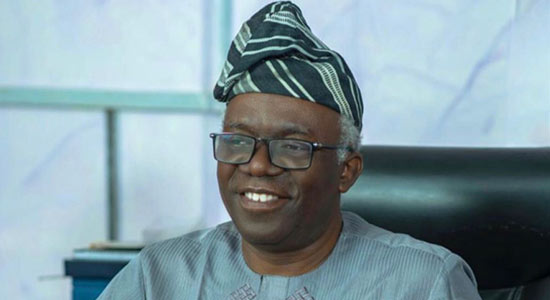Femi Falana Criticizes Obasanjo’s Refineries Deal, Calls Out Lack of Transparency in PPP Cancellation
 Human rights lawyer Femi Falana (SAN) has attributed the federal government’s cancellation of the Public-Private Partnership (PPP) arrangement for managing the Port Harcourt, Warri, and Kaduna refineries to the questionable circumstances surrounding the deal approved by the Obasanjo government in 2007.
Human rights lawyer Femi Falana (SAN) has attributed the federal government’s cancellation of the Public-Private Partnership (PPP) arrangement for managing the Port Harcourt, Warri, and Kaduna refineries to the questionable circumstances surrounding the deal approved by the Obasanjo government in 2007.
In response to former President Olusegun Obasanjo’s recent statement about his successor, the late Umaru Yar’Adua, refunding the $750 million paid by a consortium to manage the refineries, Falana said the deal lacked transparency.
The activist, speaking on behalf of the Alliance on Surviving Covid and Beyond (ASCAB), recalled how President Obasanjo, in what he described as a “breach” of the Privatisation and Commercialisation Act, allegedly sidelined Vice President Atiku Abubakar, the Chairman of the National Council on Privatisation (NCP), and took full control of the privatisation process for several public enterprises.
Falana pointed to the sale of a 51% stake in the Port Harcourt refinery to Bluestar Oil for $561 million and the sale of a similar 51% stake in the Kaduna refinery to Bluestar Oil for $160 million in 2007. Bluestar Oil, a consortium of domestic companies including Dangote Oil, Zenon Oil, and Transcorp, acquired these stakes. Falana noted that Obasanjo had previously acquired large shares in Transcorp through a “blind trust,” fueling further allegations of conflict of interest.
Both the National Union of Petroleum and Natural Gas Workers (NUPENG) and the Petroleum and Natural Gas Senior Staff Association of Nigeria (PENGASSAN) opposed the privatisation on the grounds of potential conflicts of interest and lack of due process. They argued that the shares, particularly those in the Port Harcourt refinery, which were sold for $516 million, were actually worth $5 billion. This led to a four-day strike in June 2007 that nearly crippled the Nigerian economy. The strike was eventually called off after assurances that the deals would be fully investigated.
After an investigation, the government, under President Yar’Adua, cancelled the privatisation of the Port Harcourt and Kaduna refineries. Notably, the cancellation was not legally challenged in any court, and the action was carried out in contravention of the Privatisation and Commercialisation Act.
Falana also warned of a renewed campaign for the privatisation of Nigeria’s refineries, urging NUPENG and PENGASSAN to continue their opposition to such efforts. He called on those pushing for privatisation to set up their own refineries, similar to what the Dangote Group has done.
In a related development, Obasanjo expressed doubts over the reactivation of the Port Harcourt and Warri refineries by the Nigerian National Petroleum Company Limited (NNPCL), which he said could not be trusted. Obasanjo pointed to past failures, noting that the NNPCL had failed to address the issues that plagued the refineries despite billions of dollars being spent on repairs.
Responding to Obasanjo’s comments, NNPCL invited the former president to personally inspect the refineries to see their current state. According to NNPCL’s Chief Corporate Communications Officer, Olufemi Soneye, the company has undertaken a comprehensive overhaul of the refineries to meet world-class standards, contrasting this with the past turnaround maintenance. NNPCL has also transformed into a profit-oriented energy company, aiming to meet Nigeria’s growing energy demands.
NNPCL extended an invitation to Obasanjo to tour the rehabilitated refineries, acknowledging his contributions to Nigeria’s development and seeking his continued guidance in ensuring energy security and sustainable value for the nation.













